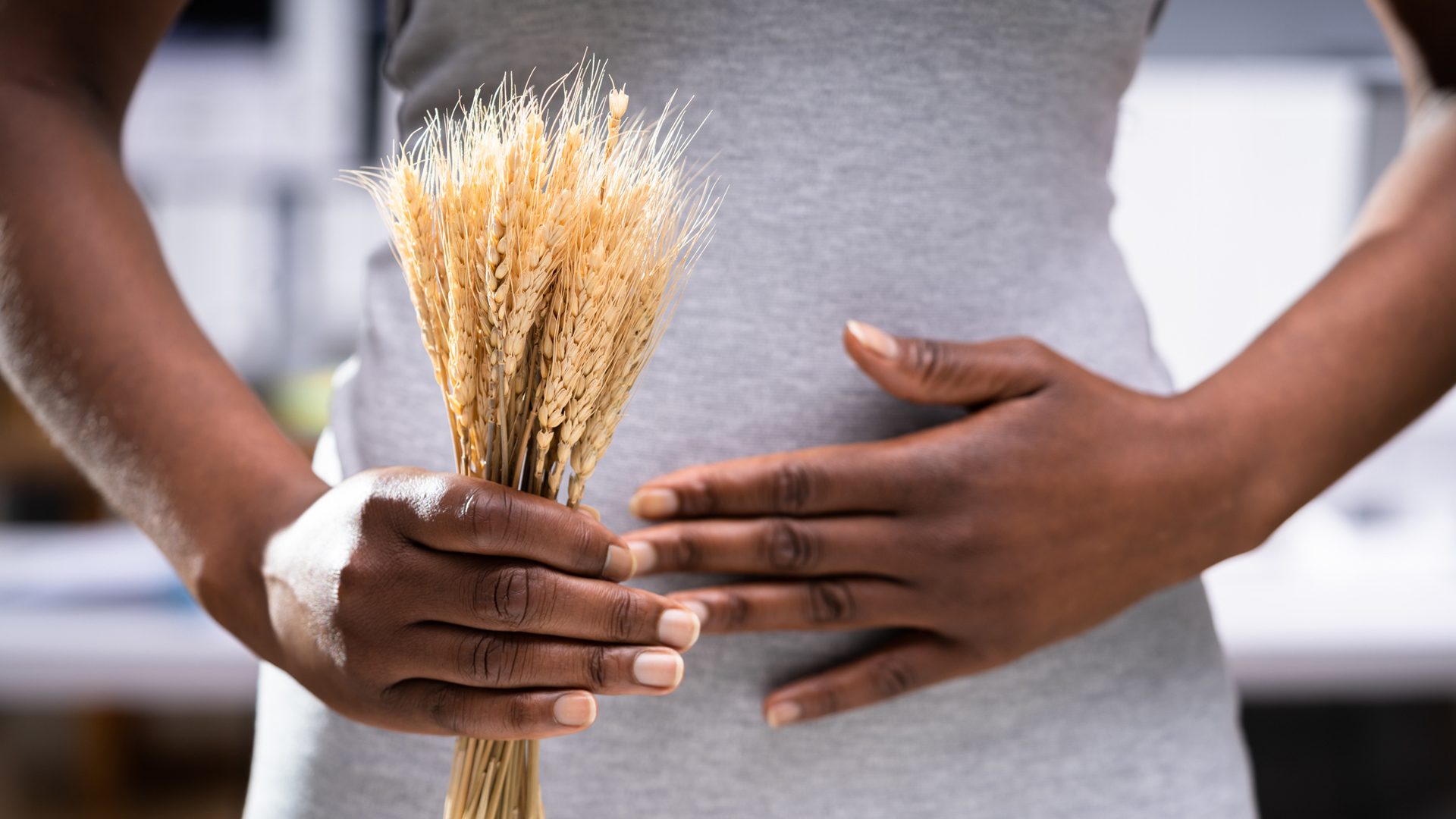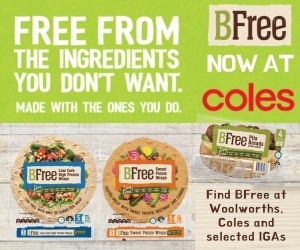ARTICLES > EXPLORE
BEST GLUTEN-FREE BEERS IN AUSTRALIA
Beer lovers with coeliac disease, gluten-free beer is better than ever – get to know the brilliant options in Australia.
ADVERTISING FEATURE
By Keith Moor
What do you miss most? That is probably one of the most asked questions after you’ve been diagnosed with coeliac disease. For this UK-born, Melbourne-based journalist with coeliac disease, the answer used to be beer – closely followed by crusty French bread.
Newcastle Brown Ale is brewed and bottled in my UK hometown and when not drinking it, I was sampling the delights of English cask real ales, like Theakston Old Peculiar and Ruddles County.
In the interest of research, I taste tested several gluten-free beers endorsed by Coeliac Australia from O’Brien, Hahn, Wilde and Two Bays, and enjoyed them all.
Each had its own distinctive characteristics. Alcohol content ranged from Wilde Pale Ale’s 3.5 per cent to the 6 per cent of Two Bays India Pale Ale. Some were more bitter than others and a couple were highly carbonated. Which you like best will depend on personal preferences.
All are great thirst quenchers. Lovers of craft beer might prefer the Pale Ale, Extra Pale Ale or India Pale Ale on offer from the Dromana-based Two Bays Brewing Company on Victoria’s Mornington Peninsula – they are brewed with malted millet, rice and buckwheat. Two Bays also releases a new seasonal beer every three months.
Those who like a full-strength, crisp, bitter lager are well catered for by O’Brien’s Premium Lager, made using millet and sorghum. O’Brien also makes a Pale Ale, Belgian Ale, Brown Ale and a mid-strength lager.
Drinkers watching their weight will be attracted to Hahn Ultra Crisp and Wilde’s Pale Ale. Both are low carb beers, with Hahn using rice instead of wheat or barley, and Wilde relying on sorghum grains for its lightly bitter taste. Hahn, being a mainstream brewer, was a welcome addition to Australia’s gluten-free beer market when it launched its 99 per cent sugar-free, 4.2 per cent strength Ultra Crisp beer last year – hopefully more mainstream Australian brewers will follow Hahn’s example.
A decade or so down the track after being diagnosed with coeliac disease, I still miss crusty French bread. But, gee, the wide range of excellent gluten-free beers now available in Australia has made it much easier to be a beer lover with coeliac disease!
NEW TO GLUTEN FREE BEER?
Don’t worry, here are a few common terms used in the beer world to help you pick your ideal style of beer:
HOPS
An essential ingredient in beer making, along with malted grain and yeast, hops are the flower from climbing plants that are part of the hemp family. Each of the different varieties has a unique flavour and aroma that is released when boiled. The primary functions of hops in beer are to impart bitterness to balance the sweetness of the malt, to act as a preservative to keep the beer fresher for longer, and work as a stabiliser to help retain the foam. The aroma and flavour of beer can be altered using different combinations of hops, introduced at various stages of brewing. The essential oils in the different hops lend the beer aromas and characteristics such as herbal notes, spice, citrus, mango, pine and mint.
ALE
Traditionally, ales are fermented in warm conditions (18-22°C). Ales usually possess a higher magnitude of flavour profiles in comparison to lagers, which is why ales are more commonly found. Due to the warmer temperatures, fruity and spicy flavours may be released.
LAGER
Lagers prefer a cooler temperature for fermenting; usually less than 12°C. This type of beer takes a longer time to ferment; however, it produces crisp and crystal-clear beers.
IPA
Also known as Indian Pale Ale, IPAs are more floral, citrus and tropical in comparison to other ales, due to the addition of hops during multiple stages of the brewing. Pale Ale is usually a medium-coloured, lightly hopped ale with low bitterness.
– Contributed by Chris Wong
LABELLING LAWS
What can they say? In Australia, the food standard does not permit beer containing malt barley to be labelled as gluten free. This differs from the standard in other countries. This standard is in place because current analytical methods available to brewers are not able to accurately measure gluten in hydrolysed or fermented products, such as beer.
Mass spectrometry, a testing method that is currently only available for use in research (due to cost and practicality), is able to detect gluten in barley-based beers claimed to be gluten free. A ‘low gluten’ claim is permitted on beer. However, other ambiguous phrases and claims like ‘gluten reduced’ or ‘crafted to remove gluten’ are not permitted. ‘Low gluten’ beers are not suitable for those with coeliac disease and should not be marketed as such.
There are a number of genuine gluten-free beers available in Australia (some locally produced, others imported). Here are the ones you need to know about…
WHAT THE BREWERS SAY

WILDE
Tell us about your signature gluten-free beer
Wilde Pale Ale is the only gluten free mid-strength Pale Ale on the market. It is endorsed by Coeliac Australia and approved as FODMAP friendly.
How would you describe your beer and the flavour profile?
Wilde Gluten Free presents as a golden Pale Ale. Careful selection of hop variety gives the beer a citrus and pine character in the aroma with floral hints, which rounds out the beer with a bitter but clean, flavoursome finish. A slight tartness from the malt balances nicely with the bitterness, giving a lift that leaves you wanting more. The beer has been crafted with no added sugar, colour, or preservatives.
Why did you develop gluten-free beer?
There weren’t too many good-tasting gluten-free beers around, so we thought we might have a crack. A few years later, our Pale Ale is still around.
Where is your beer produced? Goulburn
What beer would you recommend a wine drinker consider trying?
A good fruity sour.
HAHN
Tell us about your signature gluten-free beer
Hahn Ultra Crisp is gluten free, lower carb, 99 per cent sugar free and preservative free.
How would you describe your beer and the flavour profile?
An easy-drinking lager brewed with a revolutionary process using rice instead of the standard wheat or barley to create a cleaner, crisper beer. Ours is the first beer brewed with rice for full-strength refreshment, and a cleaner, crisper taste.
Why did you develop gluten-free beer specifically?
Hahn has always catered to emerging better-for-you trends. Right now around Australia, consumers are as health conscious as ever. They are looking after themselves a bit more, including considering what they drink and how often. There aren’t really many other easy-drinking gluten-free beers available in Australia at a good price.
Where is your beer produced?
At Lion Brewing sites around Australia; typically from NSW.
What beer would you recommend a wine drinker consider trying?
Hahn Ultra Crisp.
O'BRIEN
Tell us about your signature gluten-free beer
We have a two-tiered approach to our product range. A core range representing the more popular beer styles, and seasonals. Of the core range, the Pale Ale is probably the hero, given it was the original O’Brien beer released in 2003. The appealing difference with our Pale Ale is that although it has the characteristic American-style Pale Ale aroma, the bitterness is balanced with a slight sweetness on the palate. While all our beers are true to style, the seasonal range allows us to introduce more niche products and challenge our brewers to deliver something special. Of the seasonals, the AIBA Gold Medal-winning Stout has developed a very loyal following. We’re proud to say we are one of the new gluten-free brewers that use Australian grown, locally malted ancient grains, rather than syrups or imported malts.
Why did you develop gluten-free beers specifically?
When founder John O’Brien was diagnosed with coeliac disease, over 20 years ago, he looked for gluten-free beer – and couldn’t find any! So, he decided to make his own. After experimenting with a few home-brewed products, he became passionate about brewing great-quality gluten-free beers that could stand up to the best barley-based beers. Twenty years later, he’s still motivated to brew great-tasting beers and, several gold medals later, we think he’s doing a pretty good job!
Where are your beers produced?
We produce all our beers at our Rebellion Brewery, just outside of Ballarat.
What beer would you recommend a wine drinker consider trying?
That would depend on what kind of wine drinker they are… If they’re interested in more complex wines, we suggest our Belgian Ale or the Stout. Our Brown Ale too has a wonderful roasted, chocolate and coffee character while still being very approachable and refreshing to drink.
TWO BAYS
Tell us about your signature gluten-free beer
The Pale Ale is our hero beer because it’s where the journey began for us – and it’s the first beer for most craft beer lovers in Australia. It’s lightly hopped to provide a cracking introduction to the wide, wonderful world of beer exploration. We took two versions of this beer to the 2018 Melbourne Gluten Free Expo and had more than 500 people tell us which taste they preferred. We released that beer in cans in December 2018!
How would you describe the beers in your range and the flavour profiles?
Every quarter, we release a seasonal beer to explore different styles and share some of the great beers from our taproom with the rest of Australia. We started out with a Hoppy Brown Ale, and since we’ve released a Summer Ale, a Mosaic IPA, a Red Ale and a Passionfruit Sour – and there is plenty more to come!
Why did you develop gluten free beers specifically?
Two Bays founder Richard Jeffares was diagnosed with coeliac disease in 2015 and informed he couldn’t drink beer again. After telling his wife that his “life was over”, he started to research gluten-free beer and travelled around America in search of the world’s best gluten-free breweries, taprooms and maltsters.
He found them and returned to Australia with a big idea. That idea grew into an exclusivity deal to bring the world’s finest gluten-free malts into Australia (gluten-free malts are not currently malted on a commercial scale in Australia) and the lease of a big factory.
Other than for selfish reasons, Richard desperately wanted to create an opportunity for people who avoid gluten to explore a range of great beer with friends and family. He wanted to create the very Aussie experience for those Aussies who were missing out. Two Bays opened Australia’s first dedicated gluten-free brewery and taproom in December 2018, with seven different all grain beers on tap and a selection of gluten-free pizzas. Our Coeliac Australia endorsed Pale Ale hit shops a week later.
Where are your beers produced?
Our beer is brewed in Dromana on Victoria’s Mornington Peninsula and the beer doesn’t have to travel far to go on tap at the only dedicated gluten-free beer taproom in Australia – the brewery and taproom are in the same building, so people can explore the beer among the stainless-steel tanks and smell of hops!
What beer would you recommend a wine drinker consider trying?
We’d recommend a wine drinker tries the Pale Ale to start with – but just as there is a wine for every occasion and food group, there is a beer for every occasion too – so there is something for everyone.
BILLABONG BREWING
Billabong Brewing is a small independent brewery based in Myaree, Perth WA. Endorsed since 2006, they have been producing gluten-free beer for people with coeliac disease to enjoy for over 14 years. Billabong Brewing currently offers two endorsed gluten free beers: Gluten Free Pale Ale and Gluten Free Ginger Beer. You can even drop into their brewery to enjoy a cold beer at their bar.
READ THIS NEXT

WHAT DOES ‘MAY CONTAIN GLUTEN’ MEAN?
What does ‘may contain gluten’ on a food label mean? Should you avoid these products? Here’s what you should know.

ARE MY SUPPLEMENTS GLUTEN FREE?
Can you still have your supplements if you have coeliac disease? Accredited Practising Dietitian and health expert with Coeliac Australia Penny Dellsperger shares her advice.

WHAT TO DO IF YOU ACCIDENTALLY EAT GLUTEN
If you have a gluten sensitivity or coeliac disease, you might know straight away after an accidental gluten intake. Here’s how to ease your symptoms.
See more















I am confused about Hahn beer in the article. I do not know if a correction is required but Hahn Superdry GF is GF and only 99 calories and 4.2% alcohol.
Great information as we now have 1 coeliac and 3 gluten free family members. This information will allow us to enjoy a beer without being worried about the effects.